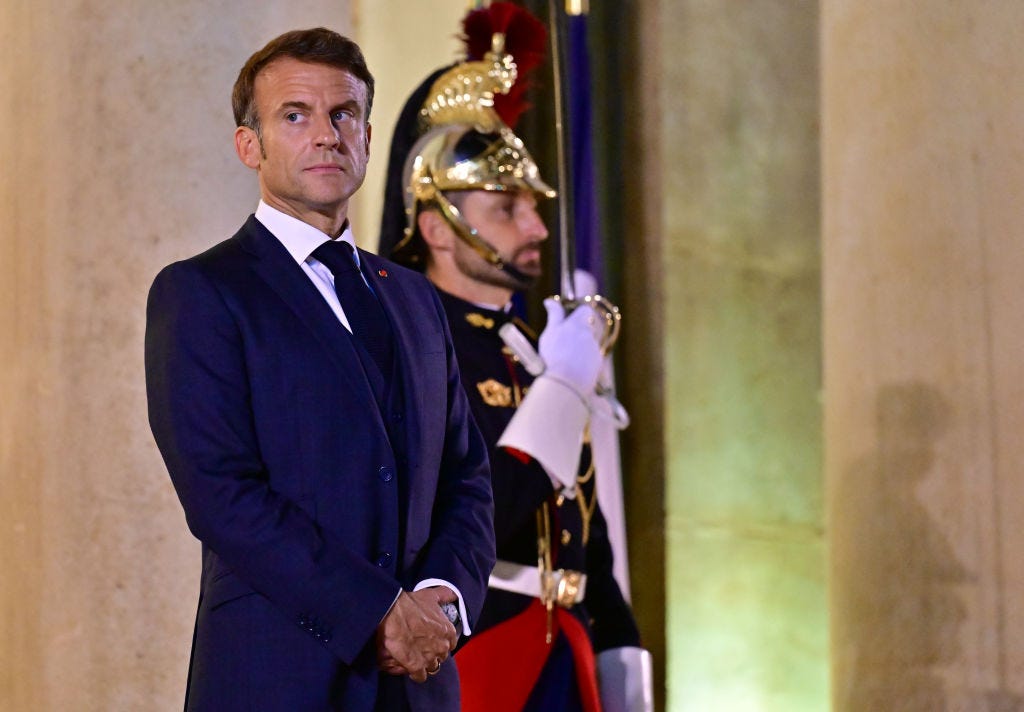“It feels like 1956 all over again”
Dominique de Villepin, former French Foreign Minister (2002 to 2004)
The 1956 Suez crisis, one of the biggest foreign policy failures of France’s Fourth Republic, saw France and the UK collude with Israel to retake the Suez Canal after it had been nationalised by Egypt, and then retreat under American pressure.
London drew the conclusion from the crisis that they need to become more interdependent with the US; Paris, by contrast concluded that it needed to become less dependent on Washington. This remains a point of difference. Suez was also notable because in addition to a crisis in the Middle East there was one in central Europe, as the Soviet Union invaded Hungary to crush an anti-communist uprising. Now there is also a proliferation of crises – the wars between Russia and Ukraine, Israel and Hamas, along with France’s rejection in the Sahel. In these circumstances does French foreign policy require a reappraisal, and, if so, is President Emmanuel Macron capable of undertaking it? After all he has been challenging established ideas since he arrived in office in 2017.
Macron has spoken a lot about foreign policy and taken many initiatives, but it remains unclear what these mean for crisis management. There are many guiding principles: the need for a strong and sovereign EU, a new form of “effective multilateralism” structured around specific issues, and a recalibration of power between North and South. There are also lofty concepts (such as strategic autonomy and puissance d’équilibre) and projects, like the European Political Community, which seem designed to provoke debate and reaction as much as reshape policy. This is why, on substance at least, French experts believe that Macron represents continuity more than innovation. His priorities are quite familiar: a strong but guarded alliance with the US; a strong and independent EU; a commitment to stability in Africa and the Middle East; and, more recently, a greater presence in the Indo-Pacific.
Where he differs from his predecessors is in his style and approach. Macron has personified France’s foreign policy: he is known for his frank talk and willingness to take risks to provoke a debate – even when this upsets his closest allies or takes his own diplomats by surprise, for example by calling NATO “braindead” or suggesting that Europeans should not be “followers” of the United States on China, particularly on the issue of Taiwan. His officials then struggle to explain exactly what he meant.
Keep reading with a 7-day free trial
Subscribe to Comment is Freed to keep reading this post and get 7 days of free access to the full post archives.





